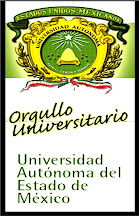A Mexican Governor’s Race Carries Presidential Implications
Teotihuacán en Línea. The New Cork Times By Kira Semplemay. Andrés
Manuel López Obrador, leader of the leftist National Regeneration Movement in
Mexico, is a front-runner in early polling for next year’s presidential
election.
The allegations have been flying fast in the bitter campaign
to lead Mexico’s most populous state. Vote buying. Payoffs. Alliances with
rogues. The illegal use of public funds. The flexing of Mafia-style muscle.
In other words, it’s business as usual in the State of
Mexico, where control of the governor’s office, up for grabs every six years,
is the biggest prize of all state contests.
The outcome of the race has long been considered a
bellwether for the presidential election, providing the victorious party with
momentum, campaign money and political influence over the largest state in the
country. And this year that seems especially true.
For more than 80 years, the governor’s office in the State
of Mexico has been under the control of the centrist Institutional
Revolutionary Party, or P.R.I. And with each victory, the party has reaffirmed
the state as its central political bastion. Its candidate won the last
election, in 2011, with more than 61 percent of the vote.
But this year, the race is shaping up to be perhaps the
closest ever, possibly foreshadowing a similarly tight contest next year in the
race to succeed President Enrique Peña Nieto, a member of Institutional
Revolutionary Party.
His deeply unpopular tenure, limited to a single six-year
term by Mexican law, is weighing heavily on the party’s bid to retain both the
State of Mexico governor’s office and the presidency.
That the Institutional Revolutionary Party is fighting for
its life in the State of Mexico is even more significant because Mr. Peña Nieto
is a native of the state and was its governor before winning the presidency.
But unbridled corruption, weak economic growth, soaring
violence and the government’s own halting response to President Trump’s
aggressive stance toward the country have eroded support for the Mexican
president and his party, helping the political opposition improve its chances
at the polls.
The biggest beneficiary so far, it appears, has been the
leftist National Regeneration Movement, or Morena, led by the populist agitator
Andrés Manuel López Obrador. He has tried to harness nationalist animus toward
Mr. Trump by criticizing Mr. Peña Nieto’s handling of the American president
and casting himself as a strong defender of Mexican sovereignty.
Mr. López Obrador, 63, is a front-runner in early polling
for next year’s presidential election, and his momentum has helped to advance
his party’s candidates at the regional level.
In the State of Mexico campaign, two polls released late
last month showed his party’s candidate, Delfina Gómez Álvarez, 54, taking a
thin lead over the Institutional Revolutionary Party’s candidate, Alfredo del
Mazo Maza.
The election is on June 4. Campaigns for governor are also
being waged in the states of Coahuila and Nayarit, but in the State of Mexico
the stakes — and the spoils — are far greater.
“It would be a big, big, big loss for the P.R.I.,” said José
Merino, a political analyst in Mexico City. The impact of a defeat on the
party’s bid to retain the presidency could be profound, he said.
“It wouldn’t be checkmate, but it would be check,” Mr.
Merino said.
The State of Mexico wraps around Mexico City and has
absorbed most of the capital region’s stunning population growth in recent
decades. It is in some ways a microcosm of the country, embodying its extreme
socioeconomic contradictions.
“It’s a very, very diverse state,” said Vidal Romero, head
of the political science department at the Autonomous Technological Institute
of Mexico. “It has places with a lot of wealth — individuals, companies,
industries — and it has places with enormous poverty.”
The state is home to more than 16 million people, about 14
percent of the nation’s population, and its economy ranges from manufacturing
to commerce to agriculture, its landscape from mountains to slums.
Like the nation as a whole, the State of Mexico has also
been wrestling with rising violence and unremitting corruption, which Mr. del
Mazo’s opponents have used to bludgeon him and his party.
They have also cast him as the epitome of political
privilege, a person whose victory at the polls would only perpetuate the
clubby, dynastic control of the nation’s most powerful offices. In addition to
being the son and grandson of former State of Mexico governors, Mr. del Mazo is
Mr. Peña Nieto’s cousin.
To drive that point home, Josefina Vázquez Mota, 56, the
candidate of the conservative National Action Party, regularly refers to Mr.
del Mazo as “the president’s cousin” in lieu of his name
Material owned by New York Times for foreign readers

































































